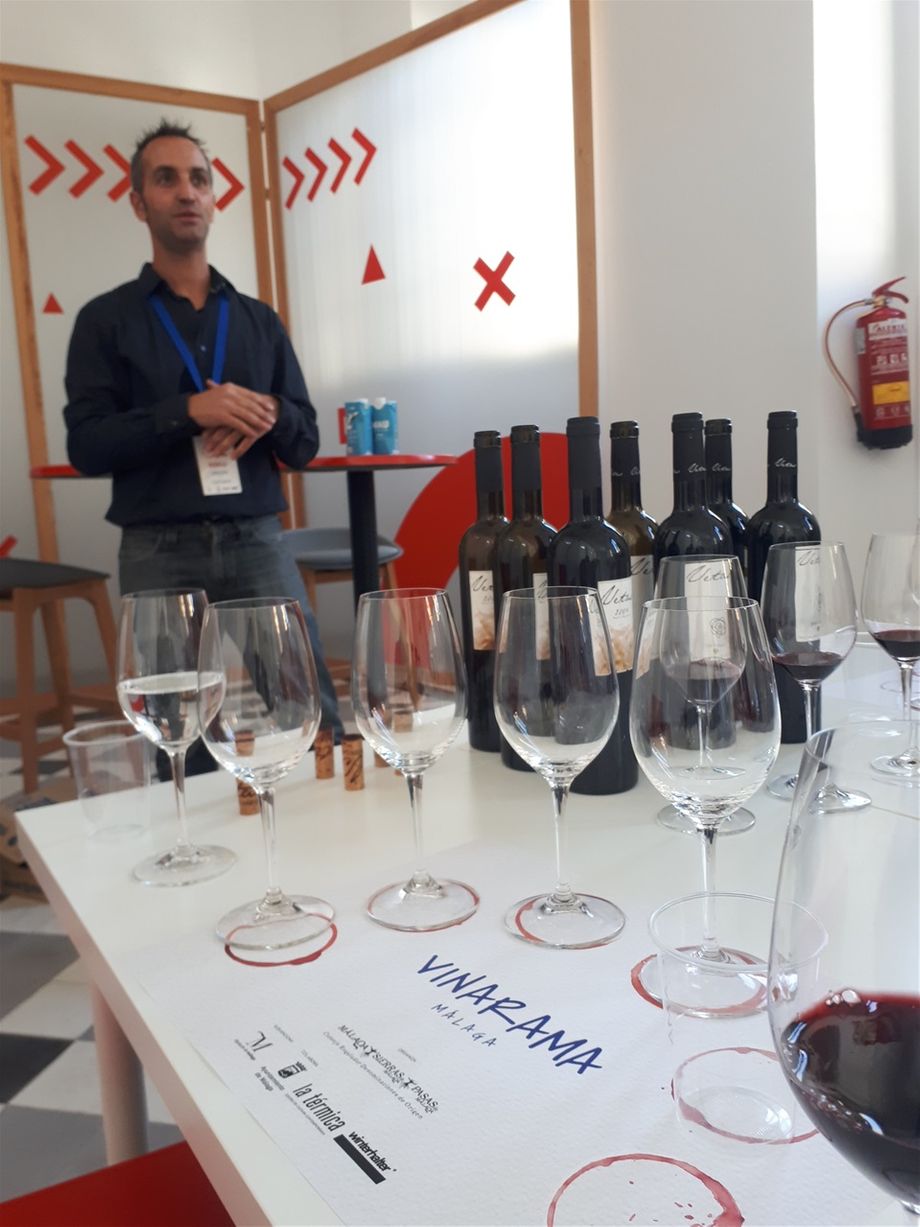23. Jun, 2022
Vertical wine tasting Vetas Petit Verdot
Vertical tasting Vetas, Petit Verdot during Vinarama
As part of Vinarama, the first major event entirely dedicated to wines from the province of Malaga, Malaga Wine Guide took part in a vertical tasting of Vetas Petit Verdot (read also our article The French Petit Verdot grape conquers Málaga - The Malaga Wine Guide ) The Madrileen Juan Manuel Vetas is the winemaker who brought Petit Verdot from France to Spain and Ronda. Juan Manuel emigrated to Bordeaux at a young age and worked there for several prestigious chateaus in the Medoc. With a touch of French bravado and a lot of knowledge, he came to Ronda and started with just 0.6 hectares of vineyard bodega Vetas. Manuel Vetas saw the potential of the terroir and of Petit Verdot in a warm climate. The special result: strong unique red wines from this special grape, true culinary powerhouses.
Even though Bodega Vetas has expanded its vineyards somewhat (to 1.6 hectares, more of a garden than a vineyard, Javier joked), the best grapes still come from this first plot and are the basis of Vetas Petit Verdot, emblematic wines made from 100 % Petit Verdot grapes. The bodega makes wines as natural as possible with the least possible addition of sulphite and no artificial interventions in winemaking. The high acidity (characteristic of Petit Verdot in warm countries) functions as a natural preservative and, together with a solid dose of tannins, gives the wines the potential to mature for a long time. The yield of the vineyard is low to keep the quality as high as possible. Bodega Vetas only markets Vetas Petit Verdot wines that are at least seven years old (wood and bottle aged)
The Vetas Petit Verdot wines are among the best the province of Malaga has to offer.
The tasting was in the capable hands of Javier Vetas, Manuel's son, who spoke passionately about the bodega and its wines. A father could not ask for a better advocate. We tasted the 2004, 2009 and 2011 vintages. Vetas Petit Verdot needs time to breathe and open, so decanting is a must. In all three wines we found the deep voilette red color (oxidation barely visible). We found nice soft tannins, excellent integrated wood (24 months) and more than sufficient acidity. Intense ripe red fruit, especially blackberry and plum, followed by cherry and blueberry. Spicy (rosemary, pepper) and a certain minerality. Hint of mint. Sometimes a hint of cocoa. Persistent, velvety mouthfeel. Complex wines with a medium to long finish.
Vintage 2004
By far the best wine of the three. In the nose it was immediately reminiscent of a beautiful old Bordeaux at first glance. The wine surprisingly didn't take long to show itself in all its splendor. Velvety tannins and plenty of lively fruit, a combination that you only find in perfectly crafted wines for long bottle age. Javier explained that the wine needed so much aging that several younger vintages had to be sold earlier. It has been well worth the wait. Javier affectionately referred to this vintage as 'el caballo viejo', the old horse.
Vintage 2009
Compared to 2011 and especially 2004, 2009 is a more earthy wine (already noticeable in the nose with woodsy, pine-like notes). In his wines, Vetas seeks the perfect balance between the 'warmth' of the alcohol and the freshness of the acids. The presence of sufficiently intense fruit should further perfect the wine. The 2009 vintage scored slightly less than the other two on this point, which was fully compensated by its otherwise versatile, more vegetal character. This may be partly due to the fact that 2009 was a very rainy year . Undoubtedly, the wine will age well for years to come.
Vintage 2011
The youngest and the jump in the field of the three. The same heavy character as 2004 and 2011 (the bodega's signature, we don't make light wines according to Javier) but unmistakably brimming with lively fruit. If 2004 is the 'old horse', 2009 is 'the wild boar' and 2011 is the 'butterfly' of the fascinating couple. This wine also has a bright future ahead of it.
At the end of the tasting, Malaga Wine Guide asked Javier whether in his opinion the province of Malaga is perhaps the best zone in the world for making wines from 100% Petit Verdot. After all, more and more bodegas are working successfully with this grape. His answer was an unequivocal yes. He thought that we might even be able to call Petit Verdot an autochthonous grape for the time being. We wholeheartedly agree with him.

